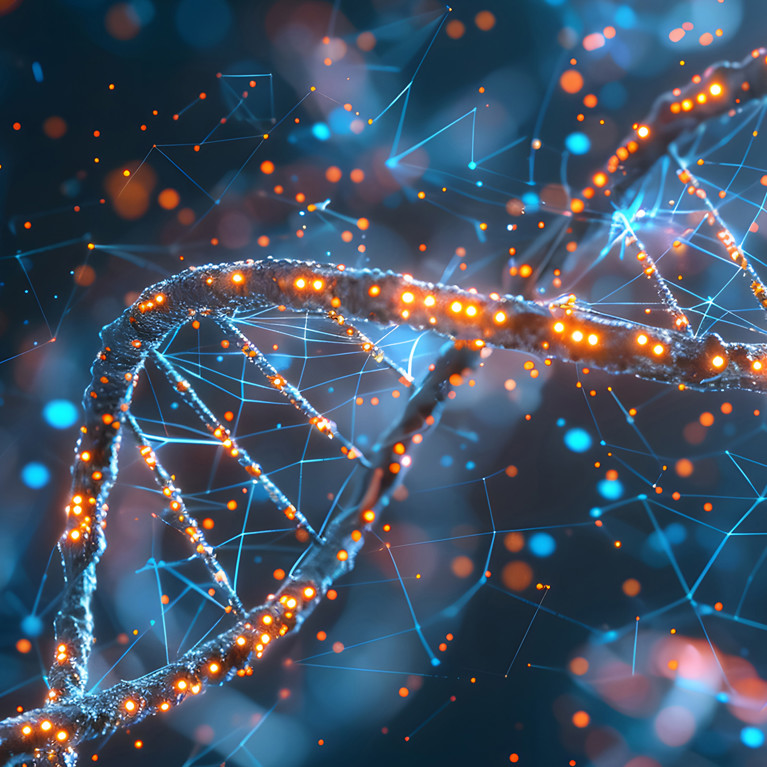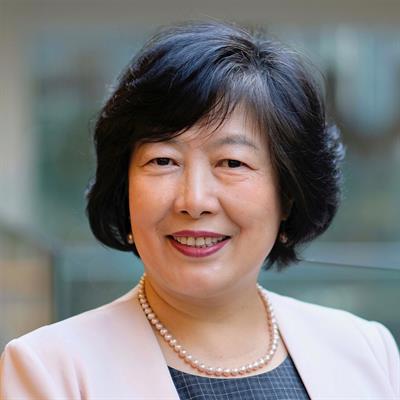- Posted on 26 May 2025
- 8-minute read
The revolution will be personalised. That's the promise of the next generation of medicine, which aims to use artificial intelligence to tailor treatments for individuals based on their genetic code or genome.
With major advances in DNA sequencing technologies during the past three decades, using genomes to predict associated disease and health conditions, accurately diagnose conditions, and tailor treatments to individuals is becoming a reality.
But first, we must overcome a major problem: there's just so much data.
Genomes are huge – they're made up of 3 billion base pairs of DNA, and there can be millions of mutations between individuals.
If personalised medicine revolution is to succeed, researchers will need to examine individual genomes, the genomes of populations stored in national biobanks, historic data of disease and reams of scientific research.
Enter Distinguished Professor Jie Lu and 23Strands.
Professor Lu is an Australian Laureate fellow, director of the Australian Artificial Intelligence Institute (AAII) at UTS, and a world leader in artificial intelligence applications.
Biomedical startup 23Strands is attempting to unlock the power of the genome, sifting through mountains of data with AI, particularly machine-learning tools.
As technology continues to advance, AI has the potential to revolutionise healthcare in early detection and personalised medicine.
Professor Lu has had great success in developing AI tools.
In the middle of the COVID-19 pandemic, Professor Lu and her team worked with Sydney Trains, using fuzzy machine-learning to accurately predict carriage load in real-time on Sydney trains. Today, this system is optimising the travel experiences of more than 500,000 passengers each day.
The connective thread for her is that she wants to use AI "for the benefit of everybody".
Prof Lu and her team are researching and developing machine learning platforms to usher in a new era of personalised medicine with researchers at 23Strands, which could include predictive tools to find associated disease early, and to enable better personalised treatments.
"As technology continues to advance, AI has the potential to revolutionise healthcare in early detection and personalised medicine. Without AI, it's almost impossible," says Professor Lu.
Making the impossible possible
23Strands is revolutionising personalised medicine, with a focus on women's health and reproductive health, says CEO Mark Grosser.
The company started in 2019 and has already attracted several million dollars in funding, but the relationship with UTS's world leaders in AI research has supercharged the company's capabilities.
"With Professor Lu, we've been able to leverage a small amount of resources in a way that we would never have been able to do otherwise," Mr Grosser says.
AAII and 23Strands are collaborating, thanks to an ARC Linkage grant, to use machine-learning techniques to better predict infertility and cardiovascular disease, as well as develop new pathways for patient healthcare using AI – especially in instances where there is limited health information available.

One of the tools developed by Professor Lu’s team and the 23Strands team is BiblioEngine, which uses AI to rapidly analyse and utilise large sets of scientific literature around particular diseases to better provide genomics informed medical recommendations.
The teams have already shown the power of this system in the analysis of stroke, the second leading cause of death worldwide, as well as heart disease and endometriosis.
"BiblioEngine has significantly reshaped the workflow of disease genetics literature research at 23Strands, and demonstrated unparalleled efficiency improvements in 23Strands’ services," says Professor Lu.
Assessing genes for their association with disease has led to the creation of AI models that can accurately predict the risk of developing diabetes.
Tested against Australian population genetics data, the researchers showed it surpassed other machine-learning methods.
The ultimate goal is for crucial gene-related information to be placed into doctors and clinicians' hands long before they start treating a patient. In each step of the process, AI is a major boon.
"We're trying to break down the problem into smaller parts, but every part is incredibly complex. That's where AI really fits," says Mr Grosser.
In the future, AAII and 23Strands hope to implement the use of AI agents to work as recommendation engines.
Through deep collaboration, built over many years, the pair hope to usher in a new era of personalised medicine, allowing access to more patients, more quickly, and at a lower cost.
And the techniques pioneered in one disease – like stroke or endometriosis – will be broadly applicable, allowing 23Strands to tackle a panoply of disease.
Mr Grosser notes, for instance, they might tap an expert in ovarian cancer, then build a community with other research institutes and industry partners, to supercharge personalised medicine in Sydney and beyond.
"We'd love to see a Silicon Valley of reproductive health here," says Mr Grosser.
Australian Artificial Intelligence Institute
Find out more about the Australian Artificial Intelligence Institute's cutting-edge research








